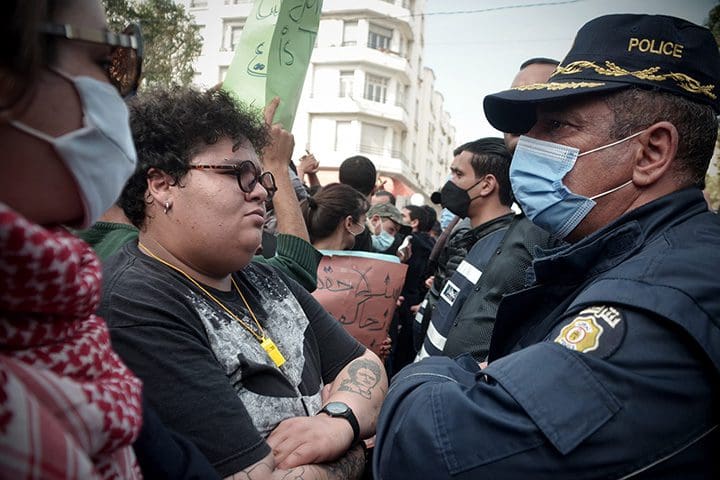In 2002, the United Nations Development Program (UNDP) produced a remarkable and far-reaching document titled the Arab Human Development Report. Written largely by Arab authors, the report mobilized a wealth of data to argue persuasively that the lack of socio-economic development within the Arab region is the product of three fundamental deficits in freedom, knowledge, and women’s empowerment. The report held that the “freedom deficit” is largely a broader deficit in the quality of governance throughout the region.
The report triggered an outpouring of discussion and debate across the Middle East and North Africa (MENA) on governance reform. In subsequent years, the region has witnessed revolutions, the collapse of authoritarian regimes, successive waves of mass protests, deadly civil wars, and several failed states. Autocrats have made a strong comeback as political transitions stalled amid growing public frustration and insecurity. Perhaps most disappointing, countries that sought to enshrine parliamentary democracy, such as Iraq and Tunisia, are now struggling to form stable governments or resist creeping authoritarianism. The COVID-19 pandemic heightened socioeconomic vulnerabilities, which have been further exacerbated by the War in Ukraine’s impact on food and fuel prices. Not surprisingly, for many Arabs, the way forward is now uncertain, and a collective sense of exhaustion and disillusionment currently hangs over the region. A recent survey of nine MENA countries showed a substantial rise in the number of citizens who believe that economic management is weaker under democratic governance, which is now the dominant view in every country polled except Morocco. Significant majorities in all the polled countries also expressed support for effective government regardless of the form that it takes.
Such sentiments are understandable given the turbulent history of the past twenty years since the UNDP report was first published. A careful look at global governance indicators reveals that there are relatively few dimensions where MENA governments have significantly progressed in the intervening decades. E-governance is a notable exception, with seven Arab countries currently ranking above the global average. Several countries have also implemented reforms to facilitate private sector-led growth, and Bahrain, Jordan, Kuwait, and Saudi Arabia were among the top reformers globally in the World Bank’s 2020 Doing Business survey. But elsewhere the results range from mediocre to terrible. The region lags behind all other parts of the world in democratization and rule of law, and recent trends have not been encouraging. Transparency International notes that no MENA country “has registered a significant improvement” in its Corruption Perceptions Index in the last decade. MENA trails the rest of the world in right to information, budget transparency, and press freedom.
While it may be tempting to dismiss governance reform as “yesterday’s agenda,” the challenges posed by weak institutions and public alienation remain as vital as ever to the long-term development of the region. MENA countries will require effective governments to address the pressing problems of unemployment, poverty, inequality, and regional disparity. They will need to deliver critical public goods and services to their citizens, as well as foster an enabling environment to support rapid economic growth. They must cultivate adaptable institutions that can respond quickly to global challenges, such as pandemics and climate change. A failure to address these issues will ensure that problems will continue to fester and public discontent will continue to grow.
Taking stock of this entire experience—good, bad, and ugly—the question remains as to what should comprise an effective and responsive governance agenda for the next decade. In a series of ongoing conversations with leading practitioners, policymakers, and academics from the region and beyond, we have been seeking to address this question. Many have excellent insights gleaned from years of experience within government, often in senior positions. All share a sense of disappointment at what has transpired and the limited progress made over the past twenty years. It is also clear that efforts to import governance templates and models from abroad have often met with limited success, and that truly effective reforms will need to be carefully adapted to the local contexts and administrative cultures.
The question of where to go from here is more vexing. Some individuals support managerial and technocratic approaches, while others feel that only far-reaching political reforms will suffice. Some believe that problems lie with weak states whose mukhabarat, or intelligence services, are one of the few institutions that function “effectively”; others believe that political parties and civil society will require strengthening to play an effective role in holding officials accountable. And finally, some assert that reforms should focus on building effective institutions to foster market-led growth, while others argue that reforms must first address the needs of the poor and marginalized.
Fortunately, respondents identified several sets of priorities and policies for the next decade that are vital, achievable, and can serve as building blocks for the future. The first is the need for any government reform agenda to bring tangible results to its citizenry, particularly those in rural areas or at the lower end of the socio-economic spectrum. As the former Palestinian Prime Minister Salam Fayyad once remarked, “people do not eat or drink reform … people need to quickly feel the tangible benefits of any reform process if they are to protect it.” While this is often easier said than done, a suite of reforms would be useful, beginning with the shift to direct cash transfer payments to needy families. Second, a major realignment of spending towards rural areas is required, which have been chronically underserved in critical sectors such as health, education, and transport. Third, a revolution in “top-down” and “bottom-up” managerial accountability is needed. This would involve combining a variety of center-of-government reforms with “bottom-up” measures that would marry greater transparency in tracking local resource flows with the empowering of local communities to help oversee how these monies are spent.
A second priority area is the regulatory reform agenda. Much can be done to analyze the impact of regulations; streamline and simplify regulatory processes; and eliminate antiquated and unnecessary rules and requirements, particularly those that fall heaviest upon small- to medium-sized enterprises. A strong emphasis on competition policy and strengthening independent regulatory authorities can help to level the playing field and end favoritism between governments and firms. The rule-making process itself can be made more transparent and open to public notice and comment.
A final area of consensus involves transparency and the right to information—areas where MENA has lagged woefully behind other regions. A few governments, such as Jordan and Egypt, have made gains in providing greater scrutiny of public finances. Tunisia, for example, has taken admirable steps to prepare and implement effective Right to Information legislation, which can help to enhance government responsiveness and strengthen public accountability. Finally, governments can open the print and digital media environment to allow for greater feedback and criticism of their operations, which is an essential part of the effort to refine and improve public services.
This list is narrow and will undoubtedly evolve over time. The region confronts many additional governance challenges, from improving voice and accountability and strengthening the rule of law, to enhancing meritocracy and managerial authority within a framework that ensures accountability for results. Yet this agenda still speaks to a number of the most urgent issues and challenges and will build the foundation for more comprehensive reforms downstream.
While the last twenty years have had their disappointments, they have also witnessed progress that can be built upon. In our recent book, Public Sector Reform in the Middle East and North Africa: Lessons of Experience for a Region in Transition, we note that there is an emerging body of good practice from within the region that needs to be captured, curated, and disseminated. Through a series of creative and strategic interventions, many of the goals eloquently expressed in the 2002 AHDR remain within reach.



